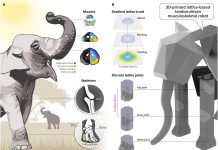
A new study by Northwestern Medicine has introduced an AI tool capable of predicting breast cancer outcomes with greater precision than traditional methods.
This innovative AI evaluation of patient tissues may spare breast cancer patients from unnecessary chemotherapy treatments, offering more accurate prognoses.
The study reveals that AI assessments outperformed expert pathologists in forecasting disease progression, highlighting the importance of non-cancerous components in determining patient outcomes.
Redefining Breast Cancer Diagnosis
Current diagnostic practices for breast cancer primarily rely on pathologists’ assessments of cancerous tissue appearance.
However, this study underscores the significance of considering patterns in both cancerous and non-cancerous cells, as they play crucial roles in predicting outcomes.
This comprehensive approach to breast cancer evaluation aims to provide more tailored treatment options.
AI’s Role in Predicting Outcomes
The AI tool developed in this study goes beyond evaluating cancer cells alone. It assesses 26 different properties of a patient’s breast tissue, analyzing the interactions between cancerous and non-cancerous cells.
By generating an overall prognostic score and individual scores for cancer, immune, and stromal cells, the AI system offers a clearer decision-making process for pathologists.
This allows for a more accurate estimate of disease risk and empowers patients to make informed decisions about their clinical care.
The Collaborative Effort and Dataset
This study was conducted in collaboration with the American Cancer Society (ACS), utilizing a unique dataset of breast cancer patients from various U.S. counties, including those from community medical centers.
The ACS played a crucial role in creating this diverse dataset, which is essential for addressing disparities in breast cancer diagnosis.
Northwestern developed the AI software, while ACS and the National Cancer Institute provided expertise in breast cancer epidemiology and clinical outcomes.
The Path Forward
The AI model developed in this study is a significant step towards more precise breast cancer diagnosis and prognosis.
The next phase involves prospective validation for clinical use, aligning with the transition to digital image diagnosis at Northwestern Medicine over the next three years.
Furthermore, researchers are working on developing models for specific breast cancer types, enhancing their ability to predict outcomes and gain deeper insights into breast cancer biology.
Conclusion
The introduction of AI in breast cancer diagnosis offers a promising avenue for improving patient outcomes.
By considering the intricate interactions between cancerous and non-cancerous cells, this AI tool enhances the accuracy of prognoses, potentially sparing patients from unnecessary chemotherapy treatments.
As AI continues to evolve in healthcare, it brings us closer to personalized medicine and more effective cancer care.
If you care about cancer, please read studies about Research shows a surprising cause of cancer and findings of The surprising impact of anxiety drugs on pancreatic cancer survival.
For more information about cancer prevention, please see recent studies about nutrient in fish that can be a poison for cancer, and results showing this daily vitamin is critical to cancer prevention.
The research findings can be found in Nature Medicine.
Copyright © 2023 Knowridge Science Report. All rights reserved.



